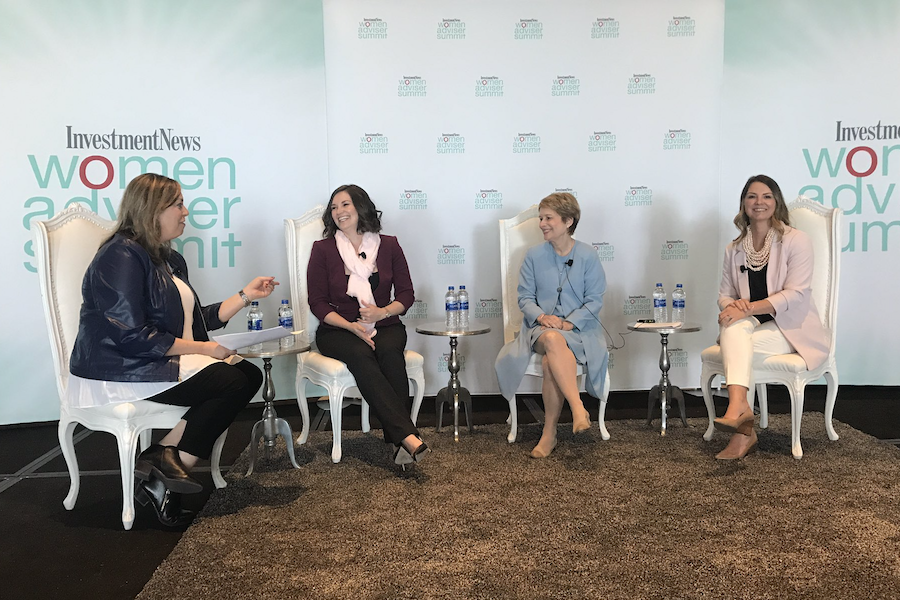Financial advisers are uniquely positioned to deliver personal financial education in the U.S., and the business advantages they glean from doing so will benefit firms for years to come, experts in financial literacy said.
The U.S. has the world's largest economy, but it ranks 14th in the world for financial literacy. Improving the nation's financial literacy would allow people to make better financial decisions over their lifetimes, which will generate more wealth.
"If we have a more wealthy population, then the economy itself is going to be better, but it also is going to create more wealth to manage," said Chloe McKenzie, founder of
BlackFem Inc., a nonprofit aimed at helping women of color build wealth by making financial education a cornerstone of public schools.
(
More:
Financial literacy: An epic fail in America)
Ms. McKenzie and other panelists speaking Tuesday at the
InvestmentNews
Women Adviser Summit in Huntington Beach, Calif., said the nation's schools need help providing financial education. And financial advisers already are experts in explaining the complicated financial information needed to understand savings and budgeting concepts.
Teachers know there is a need to provide financial education but they don't feel comfortable teaching it themselves, said Erin Voisin, director of financial planning at
EP Wealth Advisors.
"I've heard them say, 'I don't know how to budget myself so why should I be the one to teach this?'" she said.
Advisers at her firm created a curriculum that it delivers at high schools. Demand from schools has been high, and the advisers are now presenting as many as three to four times a month in the Los Angeles area.
Darla Sipolt, managing director of core West sales at
TD Ameritrade Institutional, helped her own financial adviser create a 12-month basic financial curriculum that he presents to his clients' children once they turn 18.
He's found that improving their financial literacy created deep connections with these young adults.
"He told me that he developed relationships with these benefactors that he wouldn't otherwise get to have," Ms. Sipolt said at the summit, which attracted nearly 125 female financial advisers.
(More: Teaching financial literacy through allowance doesn't work for everyone)
Improving financial literacy also can lead to more people knowing about the career of financial advising, and "there are not a lot of new people coming into this industry," said Jennifer Bacarella, director of firm development at
Sigma Financial Corp.
Sigma is partnering with different colleges to offer vouchers to juniors and seniors that allow them to take
FINRA's Securities Industry Essentials exam,
which tests basic securities industry information, free of charge.
"We are going into these classes to talk about the benefits of this industry and we tell them, 'Over your summer break, why don't you take this SIE exam? It's a great thing to add to your resume and it's good for four years,'" Ms. Bacarella said.
Financial literacy was one of the key themes at the summit, which aims to provide female financial advisers with the information they needd to invest in their businesses, along with sustainable investing, brand-building, and maximizing social security benefits.
The Huntington Beach event is the first of six such women adviser summits this year, with others taking place in Chicago, Denver, New York, Boston and San Francisco.







